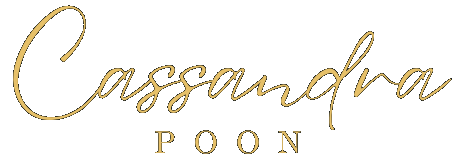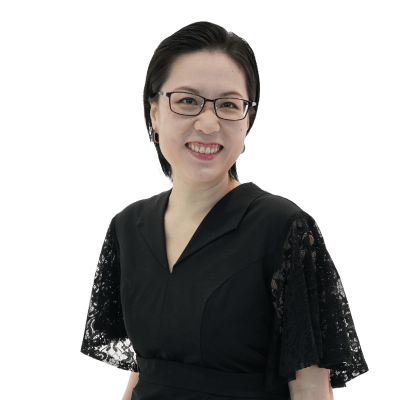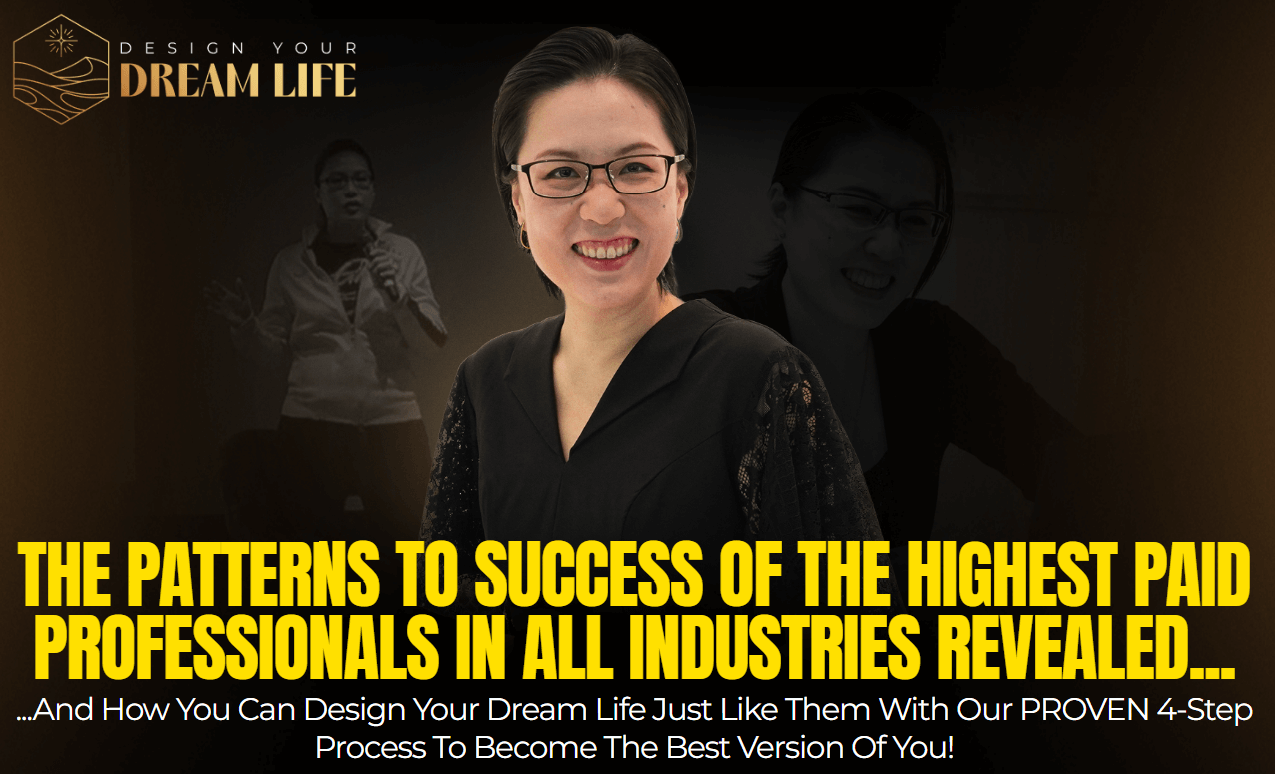

Meet Cassandra Poon
Leading You Along Your Path to Passion & Purpose
Having a love for helping people grow personally and as a team, she has developed her abilities in mentoring, managing, and delivering effective results throughout the course of her 20+ years of expertise in game development.
Cassandra is dedicated to enabling individuals and teams to realize their full potential. Whether her clients are aspiring leaders or people looking for more fulfillment, Cassandra provides clarity and self-awareness to their lives as a mentor and mindset results coach. For her, a happy existence requires striking a healthy fulfillment from both the professional and personal obligations.
Connect with Cassandra to learn how she can guide you to achieve your personal & professional objectives, navigating partnerships, and producing positive results.
Blog

🦄Unleash Your Inner Creative Power with Willow the Alicorn's Magical Lessons🦄
"You can't use up creativity. The more you use, the more you have." - Maya Angelou
Have you ever felt stuck in a creative rut? Whether you're an artist, writer, musician, or simply someone who enjoys a good DIY project, we all experience creative blocks from time to time. Yet, fret not, with the support of Willow the Alicorn, we'll explore ways to unleash your inner creativity and tap into your full potential.
Hemispheres and Creativity
🧠 Neuroscience tells us that creativity is not solely reliant on the right side of our brains, but rather a complex interplay between both hemispheres. The left side is responsible for logic and reason, while the right side handles abstract and creative thinking. By engaging both hemispheres, we can unlock our full creative potential.
🧠 Additionally, research shows that our brains have the ability to rewire themselves through neuroplasticity. This means that we can train ourselves to think and create in new ways, even if we feel like we've hit a dead end creatively.
Here are some tips to help you unleash your inner creativity:
Embrace your inner child: Remember when you were a kid and could spend hours creating without a care in the world? Try to tap into that childlike sense of wonder and curiosity. Play with colors, try a new hobby, or experiment with different materials. Allow yourself to make mistakes and learn from them.
Set aside time for creative pursuits: It's easy to let work, school, and other responsibilities take over our lives. But it's important to carve out time for activities that bring us joy and allow us to express ourselves creatively. Whether it's a few minutes or a few hours a week, make time for your passions.
Surround yourself with inspiration: Fill your space with things that inspire you, whether it's artwork, music, or quotes. Create a vision board or Pinterest board with images that evoke feelings of creativity and motivation.
Now, you might be thinking, "That's all well and good, but what if I'm just not a creative person?" 🤔
EVERYONE. Really. Every one can be creative.
The truth is, everyone has the capacity for creativity. As Elizabeth Gilbert writes in her book, "Big Magic: Creative Living Beyond Fear," "Most of all, you must be vigilant about protecting the time and space in which you work. . . Possessing a creative mind, after all, is something like having a border collie for a pet: It needs to work, or else it will cause you an outrageous amount of trouble."
Similarly, in his book "The War of Art," Steven Pressfield talks about the concept of "Resistance," the force that prevents us from creating and reaching our full potential. He writes, "Resistance cannot be seen, touched, heard, or smelled.
But it can be felt. We experience it as an energy field radiating from a work-in-potential. It's a negative repelling force. Its aim is to shove us away, distract us, prevent us from doing our work."
Lastly, Brené Brown in her book "Daring Greatly" emphasizes the importance of vulnerability and taking risks in the creative process. She writes, "Vulnerability is the birthplace of innovation, creativity and change."🦄✨
As Maya Angelou famously said,
"You can't use up creativity. The more you use, the more you have."
There are numerous books on creativity and neuroscience that can help you understand the science behind creativity and provide you with actionable steps to unleash your inner creative. Beside "The War of Art" by Steven Pressfield, "Big Magic" by Elizabeth Gilbert, "The Brain that Changes Itself" by Norman Doidge would also be worth exploring. These books will inspire you to keep pushing past your limits and help you unlock your true potential.
"The worst enemy to creativity is self-doubt." - Sylvia Plath
Remember, you have the power to be as creative as you want to be. Don't let fear or self-doubt hold you back from expressing yourself.
Trust in yourself and in the process, and you'll be amazed at what you can create. So let's release your inner creativity together, with Willow the Alicorn by your side in the days to come.
"Creativity requires the courage to let go of certainties." - Erich Fromm
About Willow the Wise Alicorn
Meet Whimsical Willow the Wise Alicorn, a (fictional) magical creature who loves to share her wisdom and life lessons through stories and legends. Willow has been around for a long time, experiencing many cultures and historic events throughout her life. Her experiences have taught her the importance of creativity, imagination, and personal growth.
Willow's superpowers are vast and varied, ranging from the ability to control the elements with her magic, to her power of flight, transformation, time travel, plant growth, and healing. With these powers, she can help one tap into their own inner creativity and unleash their full potential.
Willow uses her powers and life experiences through storytelling, visualization, or practical exercises to help others overcome their mental and emotional blocks, gain clarity on their goals, and unlock their full potential.
If you're looking to tap into your own inner creativity and unleash your full potential, do follow her blog shares!
We'd love to hear your thoughts on your creative projects. Share in the comments on our Facebook and/or Instagram! And don't forget to like and share this post with your friends who might benefit.
FAQ
What does a Mindset Coach do?
A mindset coach guides clients in setting and achieving goals, realizing their full potential, and enhancing their general wellbeing on their personal development journey. By helping clients to enhance their mindset, motivation, and self-leadership, the process leads one to grow in self-awareness and self-assurance.
How does coaching work?
The initial consultation in personal development coaching usually consists of a conversation between the coach and the client about the client's expectations, requirements, and goals.
For 1-to-1 coaching, the coach will collaborate with the client to create a personalized action plan, utilizing a variety of coaching methods and resources to aid the client in achieving their mindset goals. These 1-to-1 coaching sessions are held on a regular basis, e.g. weekly, either in person or remotely via phone or video chat.
For group coaching, this can come in the form of a 2-day or 3-day workshops. This is popular among busy professionals who would like a compact experience while reaching results in a shorter timeframe.
Clients start to see positive changes in their lives typically within a few weeks or months of working with a life coach. The speed of seeing results varies as they depend on the individual's goals and full commitment & participation to the coaching processes.
What advantages and benefits can coaching offer?
Through enhancing one's mindset, motivation, and self-leadership, personal development coaching can assist individuals in finding more success and fulfillment in both their personal and professional life. In gaining clarity of one's objectives, coaching allows one greater tenacity to overcome challenges and acquire the abilities and self-assurance needed to realize their full potential.
How can I know if coaching is right for me?
For those who are dedicated to changing their mentality and behavior for the better and who want to experience more success and fulfillment in both their personal and professional life, coaching may be helpful. If you are having struggles in overcoming challenges, suffering from blind spots to clarify your goals, working together with a coach can help you to gain the confidence required to realize your full potential.
Do choose a coach whose approach and coaching style is relatable to you. This is why an introductory appointment or exploration call as part of the initial consultation will help to set the stage for your journey.
Is coaching a confidential process?
Coaching is indeed confidential. Coaches must protect client confidentiality in accordance with their professional obligations and ethical standards.
Barring special circumstances, such as a client's potential harm to themselves or others is one instance where coaches may be obligated by law to report certain information.
Can I do coaching over the phone or online?
Yes, coaching can be done via online or phone sessions, as well as in-person sessions.
Request For A Strategy Call
Enter Your Name and Email Below:
Follow Cassandra On
Thriving Flow © 2023 - Terms of Service - Privacy Policy




